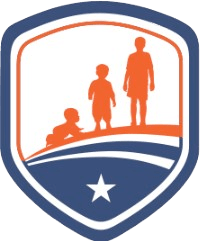How Our Academy Helps Students Develop a Strong Moral Compass

At The Greater Tomorrow Christian Academy, we believe that education is not just about academics but also about nurturing the moral and spiritual development of each student. As students grow in knowledge and skills, it is equally important to equip them with a strong moral compass—a guide to making ethical decisions and living a life that reflects Christian values. Our approach integrates faith, values, and character development into every aspect of the educational experience, ensuring that students are not only prepared for academic success but also equipped to make choices that align with their faith.
In this article, we will explore how The Greater Tomorrow Christian Academy helps students develop a strong moral compass that will guide them throughout their lives.
1. Christ-Centered Values in Every Lesson
One of the defining characteristics of The Greater Tomorrow Christian Academy is our commitment to integrating Biblical principles into the curriculum. From mathematics to science, history, and language arts, every subject is approached through the lens of Christian faith, helping students understand how God’s Word informs ethical decision-making and moral behavior.
How It Helps Students Develop a Moral Compass:
- Biblical Worldview: Every academic subject at GTCA is taught with a Biblical perspective, helping students understand that moral choices are rooted in the teachings of the Bible. For instance, students may explore themes like justice, truth, and integrity in their studies, drawing connections between these themes and the life of Christ.
- Moral Decision-Making Framework: Teachers incorporate Christian teachings into everyday lessons, providing students with a moral framework for making decisions. Whether discussing historical figures, scientific discoveries, or literature, students are encouraged to reflect on how Christian values should shape their choices and actions.
- Critical Thinking with Christian Ethics: Through discussions and projects, students are encouraged to think critically about ethical dilemmas and how to apply Biblical principles in their lives. This cultivates the ability to analyze situations and make morally sound decisions based on their faith.
2. Daily Bible Study and Prayer
At The Greater Tomorrow Christian Academy, Bible study and prayer are a daily practice. Students begin and end their day with prayer, setting the tone for their spiritual and moral development. The Bible, as the foundation for Christian values, is not only studied for knowledge but also for life application.
How It Helps Students Develop a Moral Compass:
- Understanding Biblical Morality: Daily Bible study helps students internalize God’s Word, which teaches them the principles of morality, such as honesty, kindness, forgiveness, and humility. The Bible becomes a source of wisdom for students when they face moral challenges in their lives.
- Prayer as a Moral Reflection: By starting and ending their day in prayer, students are encouraged to reflect on their actions, decisions, and relationships. Prayer allows students to seek guidance from God in developing a clear moral compass and ask for strength to make the right choices.
- Character Growth Through Scripture: The Bible teaches students the value of compassion, respect for others, and personal responsibility. As students engage with these teachings, they develop the emotional and moral strength to navigate life’s challenges with integrity and grace.
3. Modeling Christlike Behavior by Teachers and Staff
Teachers and staff at The Greater Tomorrow Christian Academy serve as role models for students, demonstrating Christlike behavior in every interaction. The example set by educators and administrators in their own moral conduct provides students with a living example of how to live out their faith with integrity.
How It Helps Students Develop a Moral Compass:
- Living by Example: Educators at GTCA don’t just teach moral principles—they live them out. Whether through showing patience, kindness, or ethical leadership, teachers set the standard for how students should behave and treat others. The consistent demonstration of Christlike behavior encourages students to adopt these moral traits in their own lives.
- Guiding Through Challenges: Teachers also mentor students through moral dilemmas, providing guidance when students face difficult decisions. By offering counsel based on Biblical wisdom, teachers help students navigate challenging situations and reinforce the importance of making morally sound decisions.
- Creating a Christ-Centered Environment: The moral environment created by teachers and staff promotes a culture of honesty, respect, and kindness. This creates a space where students feel safe to express themselves and are encouraged to treat others with the same care and respect that Christ teaches.
4. Character Education and Social-Emotional Learning
At The Greater Tomorrow Christian Academy, character education is woven into the fabric of the curriculum. We believe that moral development is not just about following rules, but about cultivating virtues such as empathy, responsibility, and respect. Our character
education program focuses on helping students understand the importance of these virtues and how they relate to their Christian faith.
How It Helps Students Develop a Moral Compass:
- Virtue Development: Through character education programs, students learn to value and practice virtues such as honesty, integrity, humility, kindness, and perseverance. These virtues are grounded in Christian teachings and serve as the foundation for moral decision-making.
- Building Emotional Intelligence: Social-emotional learning (SEL) plays a significant role in helping students understand their emotions, recognize how their actions affect others, and practice empathy. By fostering emotional intelligence, GTCA helps students develop the self-awareness and self-control needed to make moral decisions in all situations.
- Moral Reflection: Regular discussions and reflections on moral issues allow students to explore different perspectives and gain insights into how to approach various situations with a Christlike mindset. These exercises encourage students to think deeply about their actions and the impact they have on others.
5. Community Service and Outreach
At The Greater Tomorrow Christian Academy, we believe that moral growth is best cultivated through serving others. Through community service and outreach programs, students are given opportunities to live out their Christian values by helping those in need, contributing to the community, and making a positive difference in the world.
How It Helps Students Develop a Moral Compass:
- Putting Faith into Action: Community service provides a tangible way for students to apply the moral values they learn in the classroom. By volunteering and helping those in need, students practice compassion, kindness, and generosity—key components of a strong moral compass.
- Fostering a Heart for Service: Engaging in service projects helps students develop a sense of responsibility toward others, understanding that their moral obligation extends beyond their immediate circle to the broader community. This teaches them the importance of selflessness and the value of serving others with love and respect.
- Seeing Christ in Others: Service projects allow students to encounter individuals from different walks of life, which helps them develop a Christ-centered perspective on human dignity and the inherent worth of every person. This reinforces the idea that living a moral life is about seeing Christ in others and treating them with the same love and respect that Jesus demonstrated.
6. Encouraging Ethical Leadership and Accountability
As students grow, it is important to provide them with opportunities to take on leadership roles and practice ethical decision-making. The Greater Tomorrow Christian Academy encourages students to assume leadership positions in student government, clubs, and extracurricular activities, where they can lead by example and make moral choices that impact their peers.
How It Helps Students Develop a Moral Compass:
- Leadership with Integrity: By taking on leadership roles, students learn the importance of leading with integrity. They are taught to make decisions that reflect their Christian values and to be accountable for their actions. This builds confidence in their ability to make moral choices, even in challenging situations.
- Mentorship and Peer Support: Older students often serve as mentors to younger students, guiding them through their own moral development. This peer mentoring helps students understand the importance of supporting one another in their faith and encourages them to hold each other accountable in their moral journey.
- Building Accountability: In all aspects of school life, students are held accountable for their actions and decisions. Whether in academics, extracurricular activities, or personal behavior, the emphasis on accountability teaches students the value of owning their choices and striving to align them with their Christian faith.
To discover how The Greater Tomorrow Christian Academy nurtures both the academic and moral development of students, explore How Christian Education Helps Students Build a Personal Relationship with God and learn Why The Greater Tomorrow Christian Academy is the Heart of Orlando’s Christian Education for a deeper understanding of the academy's commitment to faith-based education.
Conclusion
At The Greater Tomorrow Christian Academy, we believe that a strong moral compass is foundational to a child’s success in life. By integrating Biblical principles into the curriculum, providing daily opportunities for prayer and Bible study, modeling Christlike behavior, and offering character education and service opportunities, we help students build a moral framework that will guide them throughout their lives. Our goal is to nurture not just academically capable students, but individuals who are equipped to make ethical decisions, show compassion to others, and live lives that reflect Christ’s love and teachings.
Through our comprehensive approach to moral and spiritual development, we ensure that students leave our academy not only with knowledge but with a strong sense of right and wrong—ready to navigate the world with integrity, compassion, and a commitment to living out their faith.










